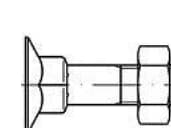Locke on Money presents for the first time the entire body of the philosopher’s writings on this important subject (other than Two Treatises of Government'). Accurate texts, together with an apparatus listing variant readings and significant manuscript changes, record the evolution of Locke's ideas from his original 1668-74 paper on interest to the three pamphlets on interest and coinage published in the 1960s. The introduction Patrick Hyde Kelly establishes the wider context of Locke's writings in terms of contemporary debates on these subjects, the economic conditions of the time, and the circumstances of writing and publication. It shows, notably, that Locke's supposed responsibility for the 1696 is a myth. The account of what Locke derived from Mercantilist writings and of how he reformulated these in accordance with his philosophy illuminates his contribution to the evolution of economics, and will aid reappraisal of Two Treaties’. The picture that emerges confirms Locke’s status as a major economic thinker, contrary to the prevalent view of recent decades. There are two volumes in the present edition. The first contains the introductory matter, and the texts of The Early Writings on Interest, 1688-74' and Some Considerations’. The second comprises Short Observations', Further Considerations’, and the Appendices, Bibliography, and Index.

Kategorier:
Förvaring, Förvaringslådor
2284 SEK
Mer Info!










